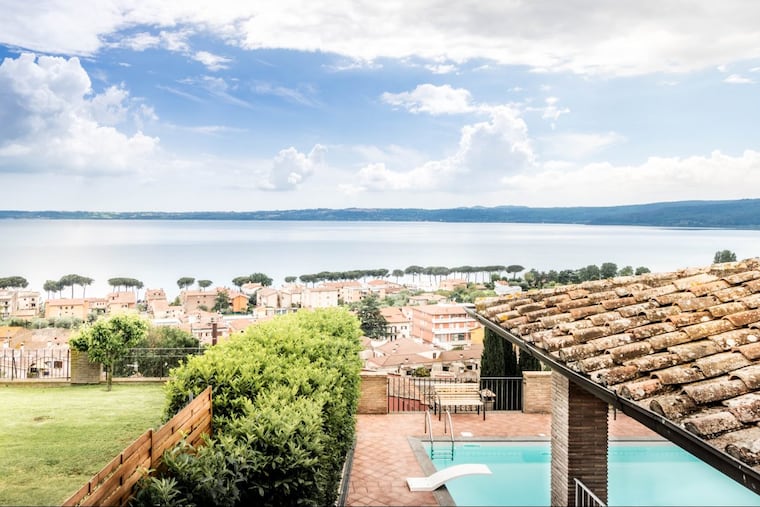What to consider before buying vacation property overseas
Living abroad or being a long-distance owner necessitates familiarizing yourself with local real estate customs and laws.

Whether you're an experienced home buyer or a novice, buying property overseas involves research and planning to avoid making a costly mistake. Living abroad or being a long-distance owner necessitates familiarizing yourself with local real estate customs.
"People fall in love with their vacation destination before they do the research that should be done before buying abroad," said Bryant McClain, director of sales and marketing with Itz'ana Resort & Residences in Belize. "Often they don't even realize that they may have to overcome complex legal issues about foreign property ownership."
Here are questions to ask before taking the plunge:
Can you legally buy property in the country?
Every country has its own regulations about noncitizens owning real estate. In some countries, you need to establish a trust or corporation to buy real estate. Other countries restrict foreign ownership.
"Having a good local lawyer is as important abroad as it is at home," said Dan Prescher, senior editor of InternationalLiving.com. "If you're not an expert on local legal and financial matters, hire one."
What kind of residency can you establish?
If you're purchasing an investment or vacation property, you won't need to establish residency, but check visa restrictions on how many days you can spend in the country. If you plan to retire or work abroad, inquire about qualifying for residency.
"Almost all Central and South American countries offer retirement residencies with a minimum age, sometimes as young as 45, and the need to prove some level of income or assets," said Mike Cobb, CEO of ECI Development, a U.S.-based developer of residential real estate in Central and South America.
How will you finance your property purchase?
Buying property overseas typically requires cash. Fluctuating exchange rates can have a big impact on your purchase.
"High local interest rates make local financing of property purchases a rarity, especially throughout Latin America," Prescher said. "Developers of new projects will sometimes offer private financing deals, but transactions are often done with bank-to-bank transfers at closing."
Will you be able to rent the property to vacationers?
If you want to rent your house when you're not using it or if you've purchased it as an investment, pay attention to local laws and tax rules. In some places, limits on rentals are under consideration as locals become aware of competition.
How will maintenance or repairs be managed?
Maintenance issues in a foreign country can be challenging, particularly if you don't live there full time or don't speak the language.
"Living in a planned or gated community will often have maintenance services built-in," Prescher said. "A place with an active local expat community will often have formal or informal networks for finding the best local maintenance resources."
What about property insurance?
U.S. homeowners insurance doesn't cover overseas property, Prescher said. But homeowners insurance is easy to buy locally and often costs less than in the United States.
Owning a vacation home or an investment property in an area prone to hurricanes can be risky. Windstorm insurance — which lenders require if you have a loan — is often expensive and carries a high deductible.
"Often people don't insure for loss of use or loss of business in the case of rentals," said Jared Warren, broker and owner of Unique Island Assets in St. John in the U.S. Virgin Islands. "In addition, people don't insure 'other structures' like fences, electrical monuments, car ports, garages, etc. This leaves the insured technically underinsured and most owners short on cash for recovery."
How will your taxes be affected?
The tax implications for owning property overseas can be complex, Prescher said. How you are taxed depends on the country where you own property and its rules, as well as whether you use the property occasionally, live in it for part or all of the year, or keep it as an investment.
"Qualified accountants both at home and abroad are valuable resources," Prescher said.
You'll also need to learn about tax rules associated with owning rental property. In some countries you'll have taxes withheld from your rental income, and in others you will need to file taxes separately for rental income.
Will there be adequate health care — and health-care insurance — available?
Check to see whether your American medical insurance covers you while you are abroad on vacation. In some countries, foreign residents can purchase health insurance locally. A local insurance agent can help you find the appropriate policy.
Colin Kirkpatrick, managing director of the European division of International Medical Group, a global benefits and assistance company based in Indiana, recommends that U.S. citizens living overseas research the requirements for joining the national health-care system in their country, if there is one, and purchase private international medical insurance.